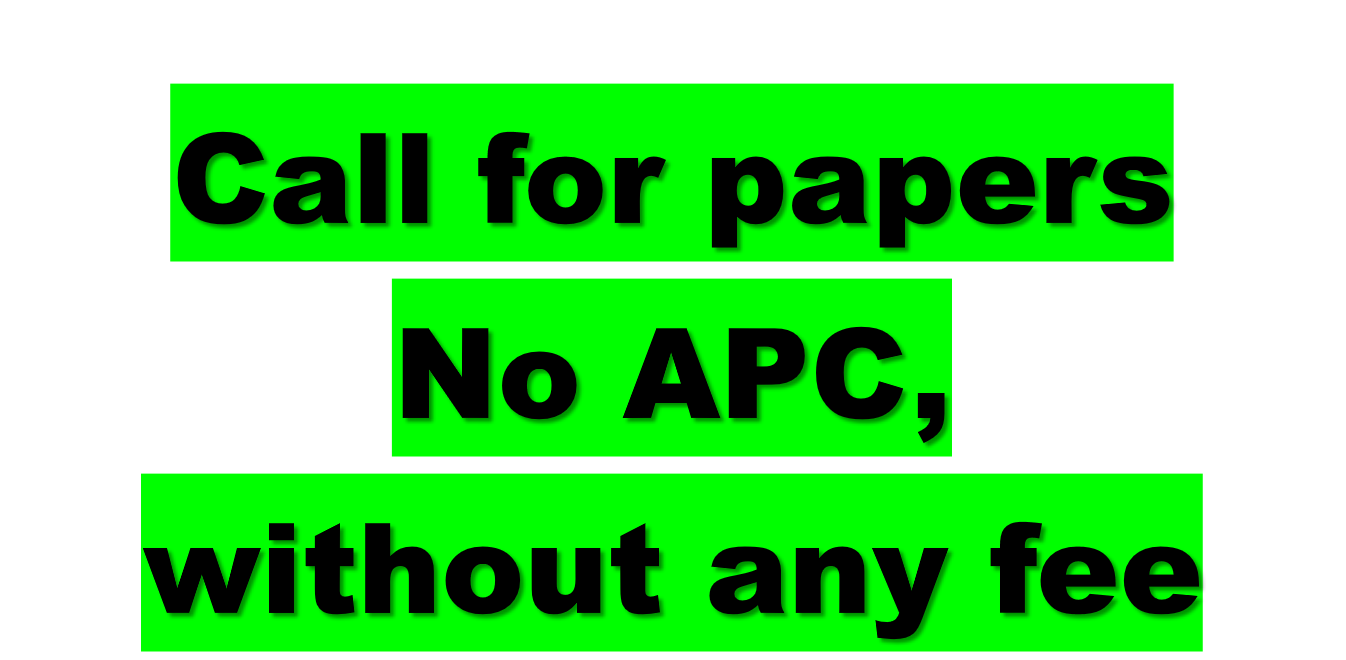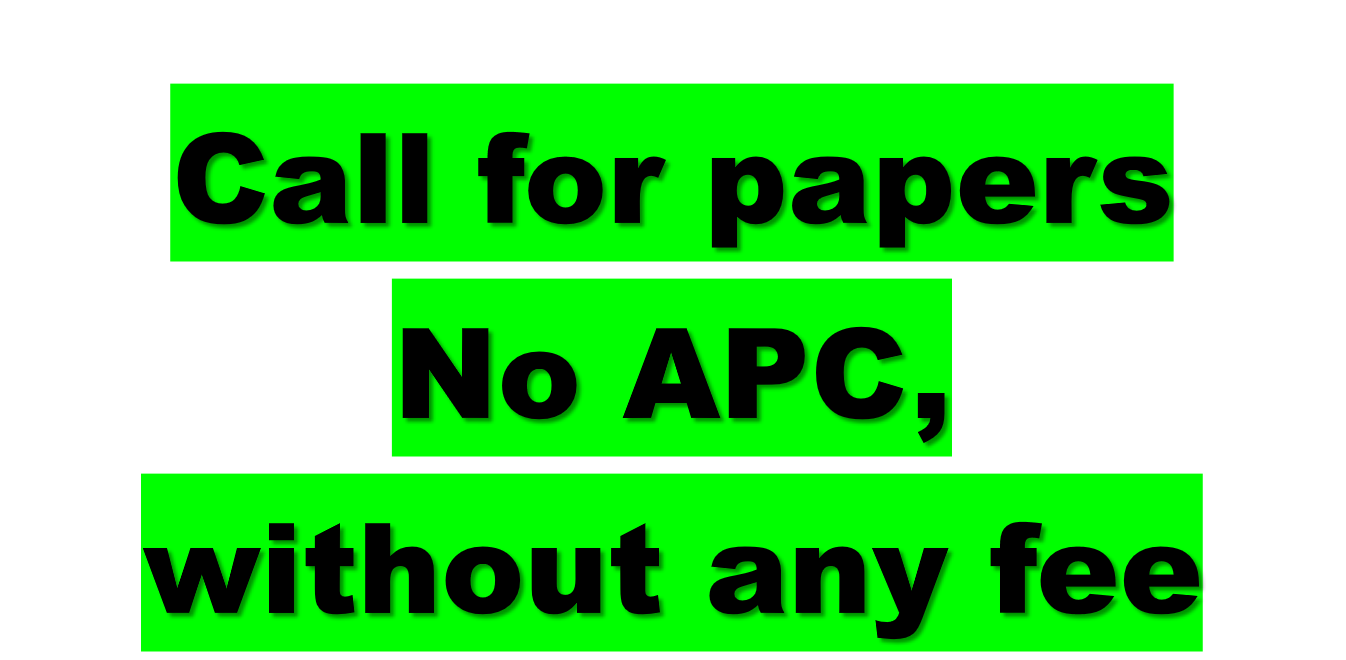About the Journal
Journal of Theory and Practice of Engineering Science (JTPES) is a monthly online, international, peer-reviewed journal. All articles published are rigorously and fast reviewed meeting the Journal Quality standards. JTPES is dedicated to publish empirical, academic, theoretical and review research articles that contribute to the practice in science, engineering, and related topics. The journal welcomes submissions in the areas of Electrical engineering, Mechanical engineering, Civil engineering, Chemical engineering, Aerospace engineering, Marine engineering, Computer engineering, Nanotechnology, Food science and technology, Bioengineering and Biotechnology, Applied Physics, Materials science and engineering, Optics, Instrumentation, Artificial intelligence, Big data, IOT, Cloud computing, Earth science, Space science, Logic, Mathematics, Statistics, Other areas related to science, technology and engineering.
An author is a person who has a substantial contribution to the article; all other contributions should be mentioned as acknowledgments. Authors should cite only the articles which have contributed to their work; unnecessary citations should not be listed. Authors should present their work as objectively as possible. Arguments that discriminate people by race, sex, origin, religion, etc. are not accepted. Bogus results must not be given. Reviewers should not take advantages from the manuscript; instead, they should help the authors to improve their work. Reviewers should not criticize in public the manuscripts. The Editor guarantees the anonymity of the reviewer. JTPES operates a single blind review process. All contributions will be initially assessed by the editor-in-chief for suitability for the Journal. Papers which are suitable are sent to a minimum of two independent expert reviewers to assess the scientific quality of the paper. The reviewer can be a member of the FSE Editorial Board or an expert from the worldwide scientific community. The review period depends from the research topic of the manuscript and the availability of the reviewers. An average review process period is between 1 - 60 days. In general, the reviewers check the importance of the article in the scientific community, if it is easy to read it and the validity of the scientific content. An article can be rejected from the reviewers’ due lack of poor language quality, lack of proper structure, lack of new scientific ideas, lack of clear concepts or conclusions. The Editor is responsible for the final decision regarding acceptance or rejection of the articles.
All articles will have a digital object identifier (DOI). DOIs are standardized digital identities used across all major scientific publishers. DOIs can be used to cite and link to electronic articles. A DOI is guaranteed to never change, so can be used as a persistent identifier to permanently link to an electronic article no matter where it is stored. So, when referring to an article you can either use the traditional reference information (name of publication, volume, issue, etc.), or use the DOI.
Publication Ethics
The publication of an article in a peer-reviewed journal/conference is an essential building block in the development of a coherent and respected network of knowledge. It is adirect reflection of the quality of the work of the authors and the institutions that support them. Peer-reviewed articles support and embody the scientific method. It is therefore important to agree upon standards of expected ethical behavior for all parties involved in the act of publishing: the author, the journal/conference editor, the peer reviewer, the publisher andthe society of society-owned or sponsored journals/proceedings.
Publication Fees
Journal of Theory and Practice of Engineering Science is a self-supporting organization and does not receive funding from any institution/government. As costs are involved in every stage of the publication process, like manuscript handling form submission to publication peer-review, copyediting, typesetting, tagging and indexing of articles, electronic composition and production, host the final article on dedicated servers, electronic archiving, server and website update and maintenance, supporting sales and marketing costs to ensure global dissemination and administrative and overheads, the author is asked to pay an article publication fee. The author's company or institution will be requested to pay a publication fee of 300 USD for an accepted manuscript regardless of the length of the paper. The publication charges are mandatory. Authors can order extra hard copies of the issue with a price of 50 USD for 1 hard copy. And the delivery will be free of charge.
Copyright
The author(s) acknowledged that the manuscript submitted is his/her/their own original work; all authors participated in the work in a substantive way and are prepared to take public responsibility for the work; all authors have seen and approved the manuscript as submitted; the manuscript has not been published and is not being submitted or considered for publication elsewhere; the text, illustrations, and any other materials included in the manuscript do not infringe (plagiarism) upon any existing copyright or other rights of anyone.
Not with standing the above, the Contributor(s) or, if applicable the Contributor’s Employer, retain(s) all proprietary rights other than copyright, such as Patent rights; to use, free of charge, all parts of this article for the author’s future works in books, lectures, classroom teaching or oral presentations; the right to reproduce the article for their own purposes provided the copies are not offered for sale.
I/We indemnify Frontiers in Science and Engineering and the Editors, and hold them harmless from any loss, expense or damage occasioned by a claim or suit by a third party for copyright infringement, or any suit arising out of any breach of the foregoing warranties as a result of publication of my/our article. I/We also warrant that the article contains no libelous or unlawful statements and does not contain material or instructions that might cause harm or injury.
The copyright of all articles published by Boya Century Publishing. Permitted third-party reuse of the open access articles is defined by the applicable Creative Commons (CC) end-user license which is accepted by the Authors upon submission of their paper. All articles in Boya Century Publishing are published under the CC BY-NC 4.0 license.





